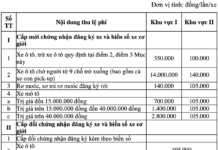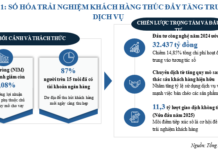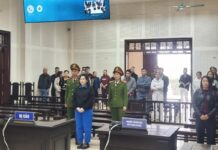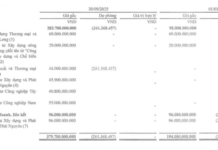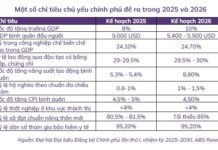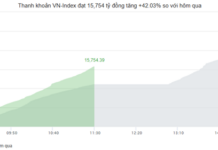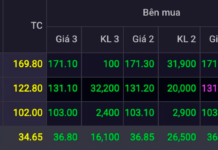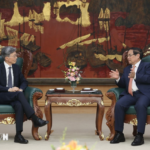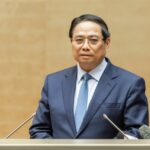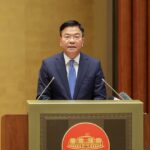Attending the conference were the Chairman of the State Securities Commission (SSC) Vu Thi Chan Phuong and representatives from various units under the Ministry of Finance, SSC, Vietnam Stock Exchange, and Vietnam Securities Depository and Clearing Corporation (VSDC). The event attracted nearly 300 participants, including representatives from major corporations, banks, and investment funds from Vietnam and abroad, as well as media outlets.
Vietnam: An Attractive Investment Destination in the Region
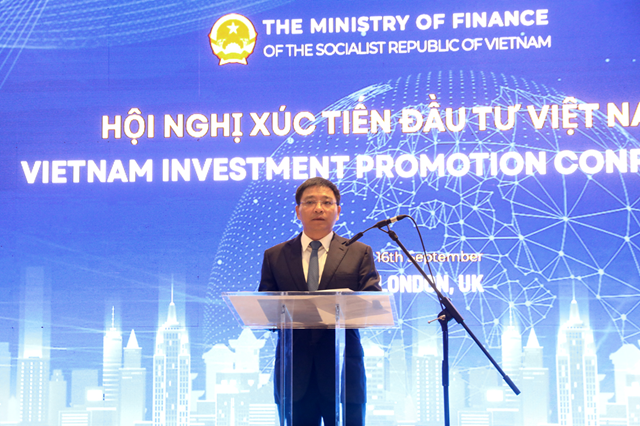 Minister of Finance Nguyen Van Thang addressing the conference
|
In his speech, Minister Nguyen Van Thang highlighted Vietnam’s positive economic performance in the first eight months of 2025. Foreign direct investment (FDI) disbursement in Vietnam increased by nearly 9% year-on-year, reaching an estimated $15.4 billion, the highest in five years.
Among the 74 countries and territories with newly licensed investment projects during this period, the United Kingdom stands as a strategic partner, a significant investor, and Vietnam’s third-largest trading partner in Europe.
Alongside the growth in FDI, the Minister noted that foreign indirect investment (FII) has also shown remarkable progress and potential, as Vietnam’s stock market continues to develop impressively.
The total market capitalization, including both stocks and bonds, reached nearly 104% of the estimated 2024 GDP. Vietnam boasts 1,600 listed and registered companies, with 7 companies exceeding a $10 billion market cap and 61 surpassing $1 billion.
As of August 2025, the VN-Index surged by 33% compared to the previous year-end, making it one of the world’s fastest-growing markets. Vietnamese securities lead ASEAN in liquidity, with an average daily trading value of over $1.1 billion. The number of securities accounts exceeded 10 million, equivalent to 10% of the population, surpassing the set target.
The Minister emphasized Vietnam’s ongoing efforts to refine its legal framework, align with international standards, and ensure the safe, transparent, and sustainable development of its stock market. In recent years, numerous reforms have been implemented to facilitate foreign investors. The Ministry of Finance and SSC have actively promoted investment through various programs, engaging with the global financial community at major financial hubs.
Driving Innovation, Technology, and Green Finance for Sustainable Development
Minister Thang shared that the Vietnamese government is committed to implementing comprehensive and robust reform strategies to usher the country into a new era of development. This includes four key breakthroughs: overhauling legal development and enforcement, fostering science, technology, and innovation, developing the private sector, and proactively integrating into the global economy.
Vietnam continues to focus on attracting high-quality FDI to shift industry structures, enhance productivity, technology, and added value. Simultaneously, it seeks FII through the stock market to diversify capital sources, optimize financial structures, and enhance liquidity, stability, and sustainability.
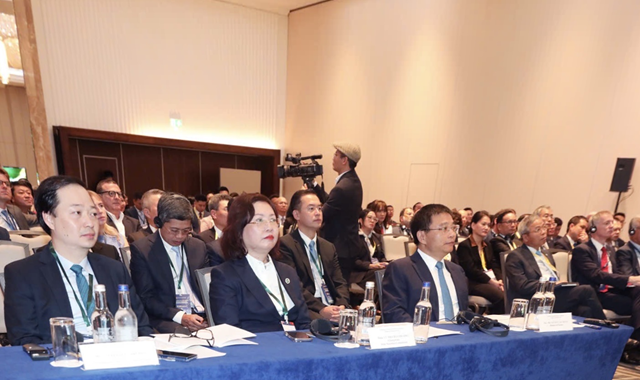
Conference overview
|
“In Vietnam, policies prioritize transparency and fairness, with an improving investment environment aimed at mutual benefits, fostering innovation, and protecting investors’ rights for long-term, sustainable investment,” the Minister affirmed, underscoring the government’s commitment to foreign investors.
Additionally, the Minister highlighted Vietnam’s value for international cooperation, particularly with the United Kingdom, a strategic partner in critical areas. He urged UK businesses, investment funds, and financial institutions, as well as European and global counterparts, to expand investments, share knowledge, and contribute to Vietnam’s sustainable development vision through technology and green finance.
The conference provided insights into Vietnam’s market potential, showcasing its stable economic growth and investment incentives for foreign direct investment and the stock market from both regulatory and market perspectives.
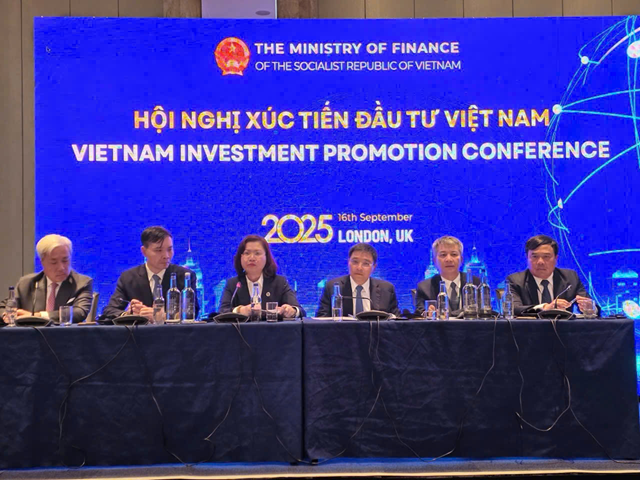
SSC Chairman Vu Thi Chan Phuong speaking at the conference
|
The event facilitated dialogue, allowing international investors to address concerns and share needs, fostering long-term, sustainable cooperation between Vietnamese and UK businesses. Post-conference, bilateral meetings between Vietnamese and UK companies sparked expectations for new investment projects, elevating economic and financial ties between the two nations.
– 13:42 17/09/2025
Vietnam Poised for 7% Annual Growth from 2026 to 2045, Says UOB’s Suan Teck Kin
In the period from 2026 to 2045, an average annual growth rate of approximately 7% is entirely achievable for Vietnam. This vision can become a reality if the current policies of reform and openness, coupled with robust investment and trade initiatives, continue to be vigorously promoted and effectively implemented.
Prime Minister Proposes National Scholarship Fund and Increased Education Spending
Prime Minister Pham Minh Chinh announced that the government will establish a National Scholarship Fund and increase the education budget, aiming to create a strategic breakthrough in workforce training.
Deputy Prime Minister: Government Secures Funding for Universal Healthcare Exemption
On the morning of September 16th, during the National Conference on Implementing the Political Bureau’s Resolutions, Deputy Prime Minister Lê Thành Long presented Topic 2, focusing on the key and core contents of Resolution No. 72-NQ/TW dated September 9, 2025, issued by the Political Bureau. This resolution outlines breakthrough solutions to enhance the protection, care, and improvement of the people’s health, along with the Government’s Action Plan to implement it.
Streamlining Construction Permits: The ‘One-Stop, One-Lock’ Approach to Approval and Licensing
Revolutionizing the construction permit process, Deputy Director of Hanoi’s Department of Construction, Luyen Van Phuong, has proposed a transformative reform in the revised Construction Law draft. His advocacy for a streamlined “one-stop, one-lock” mechanism aims to simultaneously evaluate and significantly reduce processing times, garnering widespread attention as a pivotal step toward administrative efficiency.





